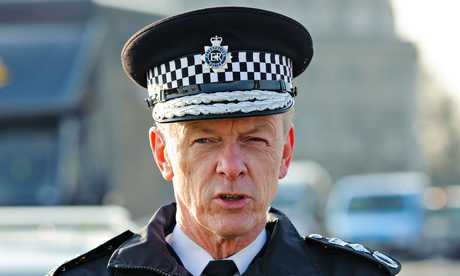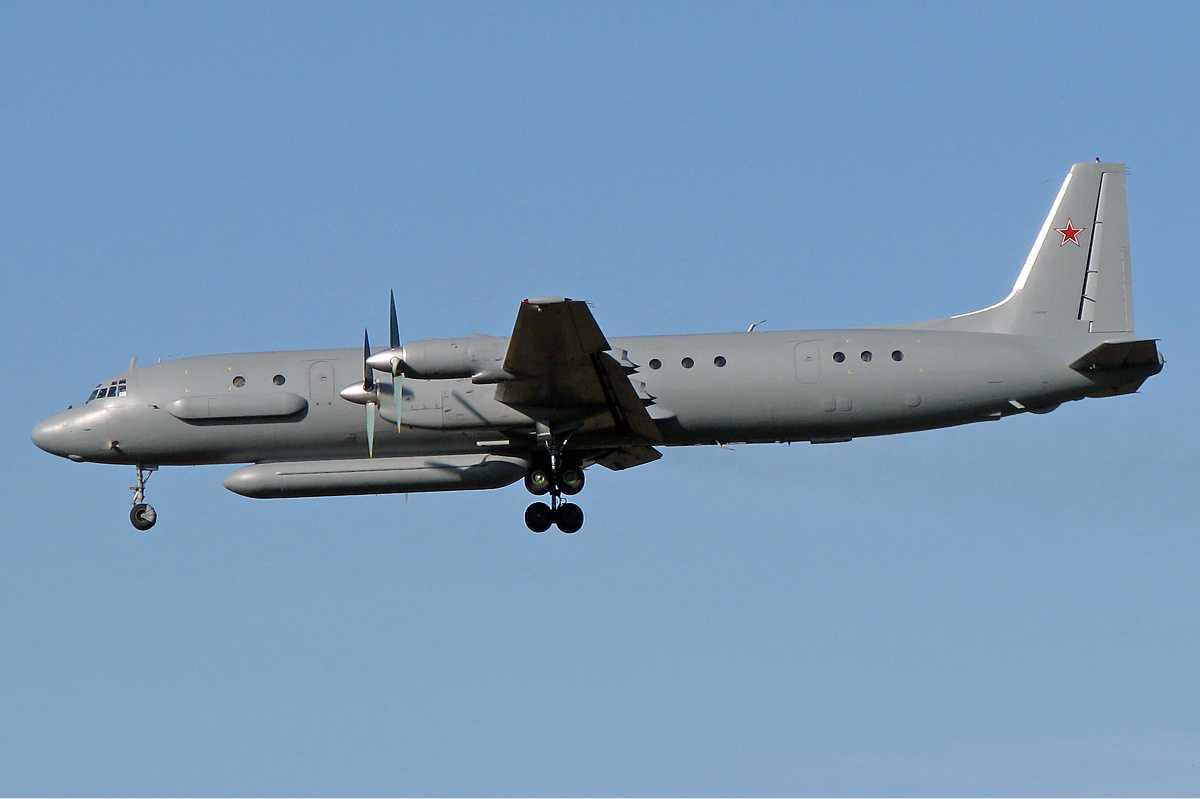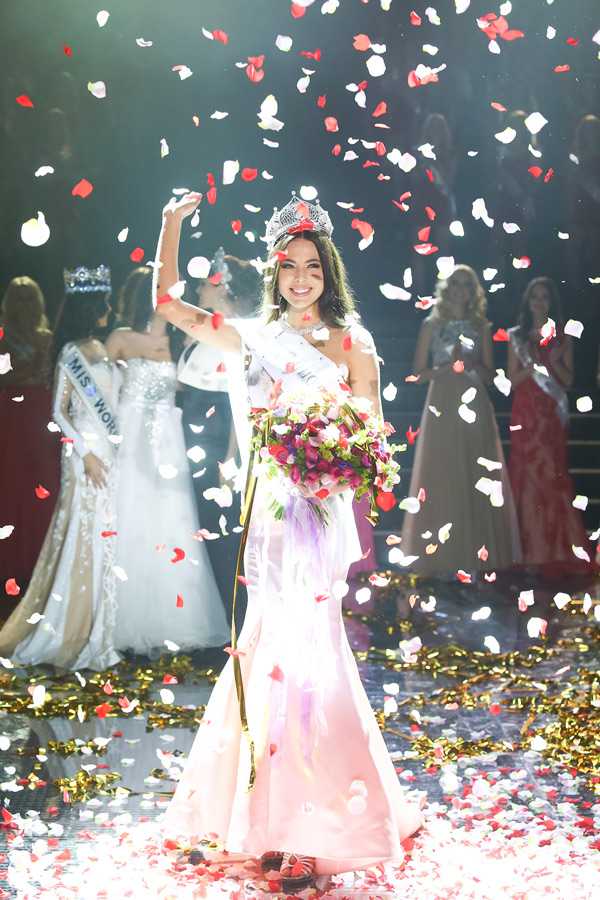Open letter (slightly revised) rebutting Armenian claims submitted by Ferruh Demirmen to Swiss Interior Department on ECHR’s decision on Perinçek v. Switzerland.
February 24, 2014
An Open Letter to:
Madame la Conseillère fédérale
Simonetta Sommaruga
Cheffe du Département fédéral de justice et police (DFJP)
Palais fédéral ouest
CH-3003 Berne, SWITZERLAND
Dear Madame Sommaruga,
This open letter is being submitted by a concerned citizen as a rebuttal of an open letter sent to you by a group called “concerned genocide scholars” regarding the December 17, 2013 judgment of the European Court of Human Rights (ECHR) on Perinçek v. Switzerland.
In their February 16, 2014 letter, the “scholars” take issue with ECHR’s position that genocide is a precisely defined legal concept that is not easy to prove, and that the historical record on the 1915 events is a matter of debate. The “scholars” argue that the 1915 events constitute “genocide,” and request that you re-examine the Court’s judgment. This letter will endeavor to establish that the arguments advanced by the “scholars” are incomplete and specious.
The “scholars” assert that Ottoman “mass killings” of Armenians conform to the definition of Article 2 of the 1948 U.N. Convention on the Prevention and Punishment of the Crime of Genocide (CPPCG). But such assertion is based only on a partial reading of the Convention. That Convention, in fact, is the Achilles’ heel of the “Armenian genocide” thesis. For Article 2, while describing genocide as, in part, killing or causing serious harm to the members of a group, makes two additional provisos: (1) there must be intent, (2) the targeted victims should belong to a particular national, ethnical, racial or religious group. The “scholars” conveniently ignore these two provisos.
Ottoman government archives contain incontestable evidence that the relocation of Armenians in 1915 was not related in any way to nationality, religion, etc., but to military exigency in time of war, which was being fought on multiple fronts. Rebellious armed Armenian groups were aiding and abetting the enemy and sabotaging the Ottoman army from behind, and the government had to intervene. In other words, Armenians were subjected to relocation not because of their religion or ethnicity, but because they posed grave security threat in time of war. Armenians in the western part of Anatolia were spared from relocation orders because they did not pose a security threat. The central government orders to local authorities made it clear that the security of Armenian convoys during relocation should be ensured, and that all necessary precautions should be taken to meet their needs during and after relocation.
There was no intent to harm the Armenians; but war conditions including lawlessness, chaos, disease, and famine, gave rise to tragic events on both sides.
The fact that Armenians in the western part of Anatolia were spared from relocation orders belies accusations that the 1915 events were religion or ethnicity-related.
Russian archives also reveal that religion and ethnicity were not causal factors behind the relocation orders, that relocation was conceived as a measure of self-defense by the Ottoman government, and that the tragic events were inter-communal in nature.
Considering the above facts, and viewed in its fuller context, Article 2 of the 1948 Convention negates the genocide argument advanced by the “scholars.” The “scholars” cannot pick and choose a portion of Article 2 and ignore the rest.
Equally important, the 1948 Convention contains a stipulation, in Article 6, that those charged with the crime of genocide should be tried by a competent tribunal in the state where the act was committed, or by an international penal tribunal whose jurisdiction is recognized by the contracting parties. In other words, to establish the crime of genocide, a court verdict is a sine qua non. The judgments by the Nuremberg Tribunal post-World War II, and the International Criminal Court (ICC) more recently on the Rwanda and Srebrenica events are examples to such verdicts.
There exists no court verdict, however, on alleged “Armenian genocide.” The Malta Tribunal, convened by the victorious British after World War I to prosecute 144 high-ranking Ottoman officials on charges of killing Armenians, yielded not a single conviction. Among those detained for trial were cabinet ministers, the Grand Vizier and Army Commanders. The Armenian Patriarchate at Istanbul was the principal source of information against the accused, but the evidence was too flimsy for formal prosecution. Even the search of the U.S. State Department files in Washington failed to produce incriminating evidence. After two years of investigation, all Malta detainees were released and returned to Turkish soil.
It is interesting that in referring to the opinions of France, the United Kingdom and Russia in their 1915 joint declaration, the “scholars” do not mention the Malta Tribunal. The Malta Tribunal drew its jurisdictional authority from these three powers, and its findings were binding on the three powers.
So, Article 6 of the 1948 Convention also negates the genocide assertions of the “scholars.” What Article 6 establishes, in principle, is that neither parliaments nor a group of academics can pass judgment on an alleged genocide crime. A verdict by a duly authorized court of law is a must. The “scholars” ignore this very fundamental precept contained in the 1948 Convention.
In conclusion, the 1948 Convention, which is the fundamental international covenant bearing on genocide determination, completely vitiates the genocide thesis when viewed in its entirety. The “scholars do not have the luxury to use only a portion of the covenant to establish their case.
The “scholars” note that in 1997 the “International Association of Genocide Scholars” passed a resolution recognizing the Ottoman massacres of Armenians as genocide. That may be so, but a large number of scholars hold the opposite view. In 1985, for example, 69 U.S. historians and researchers passed a unanimous resolution, addressed to members of the U.S. House of Representatives and published in New York Times and The Washington Post, refuting Armenian allegations. These were academicians specializing in Turkish, Ottoman and Middle Eastern studies. Many of these academicians were subsequently harassed or intimidated by the pro-genocide camp.
The conclusion is inescapable, as ECHR observed, that there is no consensus among historians and scholars on the 1915 events. And that is not taking into account the views of Turkish researchers and historians.
In their letter the “scholars” indirectly draw an analogy between Holocaust and the 1915 events. Such analogy is not only grotesque, but more bluntly, obscene. Jews of Nazi Germany did not rise in armed rebellion against the state, did not embark on a rampage of violence against the local population, did not join the ranks of an invading army, did not sabotage the German army behind the front lines, and in general did not engage in perfidious acts. Their only “crime” was not being of the “Aryan race.” Race was the motive behind the killings.
The Nazis did not court-martial those implicated with wrongdoing against the Jews, as did the Ottomans prosecute those accused of mistreating Armenians during relocation. Nor did the Nazis deliberately spare Jews as “good citizens” in some parts of the Reich, or award meritorious awards to Jews, as did the Ottomans to Armenians. The Ottomans, having long embraced Armenians in high-ranking positions in the government, including generals and cabinet ministers, did not spread racist, scurrilous lies about the Armenian minority. And the Armenians certainly did not perish in gas chambers.
To broaden their horizon on the 1915 events, the “scholars” should perhaps read, if they have not already, the admissions of Boghos Nubar Pasha at the Paris Peace Conference in January 1919, and the manifesto issued by Johannes Kachaznuni at the Dashnak convention in Bucharest in March 1923. It would be like hearing the truth from the horse’s mouth. More than half of a million Muslims lost their lives at the hands of Armenian guerillas who fought a losing battle relying on false promises of imperial Western powers and the Tsarist Russia. Even the Russian officers on the scene were troubled by the severity of violence inflicted by the Armenian guerillas on Muslims.
And the terror inflicted was not confined to Muslims. As stated by Albert J. Amateau, a rabbi born in Turkey and later emigrated to America, in a testimony sworn before a notary public in California in 1989, Armenian atrocities also extended to Jews, and even to Armenian families who refused to cooperate with the armed guerillas.
In their letter the “scholars” attempt to link the tragic murder of Hrant Dink to genocide controversy, and claim that Turkey has “one of the worst” records on human rights “over the past decades.” This is a slanderous attack aimed at Turkey, and it is deplorable. Dink was murdered by a deranged fanatic, and the facts behind the assassination are still unknown. More than 100,000 Turkish people took to the streets in Istanbul to protest Dink’s murder. Mention of human rights by the “scholars” is particularly ironic, considering that their list of signatories is headed by none other than Taner Akçam, an ex-convict and a prison escapee who advocated violence and was imprisoned for terrorist activities in Turkey. Akçam is now a protégée and beneficiary of the Armenian lobby.
And speaking of human rights, it is curious that the “scholars” failed to mention the ASALA/JCAG terror that took more than 40 innocent lives, most of them Turkish diplomats, during 1973-1991. Not only did the committees funded by Armenian organizations pay for the legal defense of the majority of terrorists, but several prominent Armenians and pro-Armenian “scholars” testified in the trials of the terrorists. One terrorist, after his release from the French prison, was welcome as a hero in Armenia. So much about concern for “human rights”!
Incidentally, how many Armenians took to the streets to protest the killing of Turkish diplomats and their families by the ASALA/JCAG terror?
It is a known fact that Turkey and Armenia cannot agree on legal characterization of the 1915 events. That being the case, one wonders why the “scholars” have not urged Armenia to file a complaint with the International Court of Justice (ICJ). Established in 1945, ICJ is the primary judicial arm of the U.N. to settle legal disputes submitted by states. A court case undertaken by ICJ would require all historical archives to be open, due process to apply, and the evidentiary material scrutinized for probity. The only reasonable explanation for the stance of the Armenian side is that it finds a judicial process too risky for its taste.
The Armenian side, instead, has over the years relied on propaganda in public arena, where bias and prejudice play a large role, and financial resources can be deployed aplenty.
It is refreshing that the “scholars” make a concession in their letter: They agree with the notion of freedom of expression articulated by ECHR. It is impossible not to be sarcastic about their newly-found concern for this basic human right. Over the years these “scholars” attended conferences where presence of academics opposing their genocide thesis was not welcome. Did the “scholars” express any freedom of expression concern when, in 1995, a French court fined historian Prof. Bernard Lewis because he did not subscribe to the genocide thesis, or when, in 2007, Dr. Doğu Perinçek was convicted by a Swiss court for the same reason? And what was the reaction of the “scholars” when the French Senate passed a bill in 2011 (later overturned) that criminalizes denial of “Armenian genocide”?
One additional comment in this context is noteworthy. The “scholars” use the word “denialist” to refer to those who reject their genocide assertions. “Denialist” is a pejorative term, and its use is a breach of academic decorum. It is also a sign of arrogance. How would the “scholars” like if their colleagues in the opposing camp call them “distortionists” or “fabricators”?
To wrap up, characterization of the 1915 events as “genocide” is incompatible with the definition of this term as prescribed in the 1948 U.N. Convention. “Genocide” is a legal construct, and should not be used to further political aims. The suffering on the Armenian side in the 1915 events cannot be denied; but the suffering on the Turkish side also deserves recognition. After a century, it is time for the two sides to reconcile their differences without further recrimination, and move on. We don’t need new generations poisoned with “genocide” controversy.
It is hoped that the Swiss government will accept the judgment of ECHR as final.
Respectfully yours,
(hard copy signed)
Ferruh Demirmen, Ph.D.
(address)
Appendix
SIGNATORIES TO MAY 19, 1985 STATEMENT ADDRESSED TO THE MEMBERS OF THE U.S. HOUSE OF REPRESENTATIVES AS PUBLISHED IN NEW YORK TIMES AND WASHINGTON POST:
RIFAAT ABOU-EL-HAJ
Professor of History, California State University at Long Beach
SARAH MOMENT ATIS
Professor of Turkish Language & Literature, University of Wisconsin at Madison
KARL BARBIR
Associate Professor of History, Siena College, New York
ILHAN BASGOZ
Director of the Turkish Studies, Department of Uralic & Altaic Studies, Indiana University
DANIEL G. BATES
Professor of Anthropology, Hunter College, City University of New York
ULKU BATES
Professor of Art History, Hunter College, City University of New York
GUSTAV BAYERLE
Professor of Uralic & Altaic Studies, Indiana University
ANDREAS G. E. BODROGLIGETTI
Professor of Turkic & Iranian languages, University of California at Los Angeles
KATHLEEN BURRILL
Associate Professor of Turkish Studies, Columbia University
RODERIC DAVISON
Professor of History, George Washington University
WALTER DENNY
Associate Professor of Art History & Near Eastern Studies, University of Massachusetts
DR. ALAN DUBEN
Anthropologist & Researcher, New York City
ELLEN ERVIN
Assistant Professor of Turkish Researches, New York University
CAESAR FARAH
Professor of Islamic & Middle Eastern History, University of Minnesota
CARTER FINDLEY
Associate Professor of History, Ohio State University
MICHAEL FINEFROCK
Professor of History, College of Charleston, South Carolina
ALAN FISHER
Professor of History, Michigan State University
CORNELL FLEISCHER
Assistant Professor of History, Washington University (Missouri)
TIMOTHY CHILDS
Professorial Lecturer at SAIS, Johns Hopkins University
SHAFIGA DAULET
Associate Professor of Political Science, University of Connecticut
JUSTIN MCCARTHY
Associate Professor of History, University of Louisville, Kentucky
JON MANDAVILLE
Professor of the History of the Middle East, Portland State University, Oregon
RHOADS MURPHEY
Assistant Professor of Middle Eastern Languages & Cultures & History, Columbia University
PIERRE OBERLING
Professor of History, Hunter College, City University of New York
ROBERT OLSON
Associate Professor of History, University of Kentucky
DONALD QUATAERT
Associate Professor of History, University of Houston
WILLIAM GRISWOLD
Professor of History, Colorado State University
WILLIAM HICKMAN
Associate Professor of Turkish, University of California at Berkeley
JOHN HYMES
Professor of History, Glenville State College, West Virginia
RALPH JAECKEL
Visiting Assistant Professor of Turkish, University of California at Los Angeles
JAMES KELLY
Associate Professor of Turkish, University of Utah
PETER GOLDEN
Professor of History, Rutgers University, New Jersey
TOM GOODRICH
Professor of History, Indiana University of Pennsylvania
ANDREW COULD
Ph.D. in Ottoman History, Flagstaff, Arizona
MICHAEL MEEKER
Professor of Anthropology, University of California at San Diego
THOMAS NAFF
Professor of History & Director, Middle East Research Institute, University of Pennsylvania
WILLIAM OCHSENWALD
Associate Professor of History, Virginia Polytechnic Institute
WILLIAM PEACHY
Assistant Professor of the Judaic & Near Eastern Languages & Literatures, Ohio State University
HOWARD REED
Professor of History, University of Connecticut
TIBOR HALASI-KUN
Professor Emeritus of Turkish Studies, Columbia University
J. C. HUREWITZ
Professor of Government, Emeritus, Former Director, Middle East Institute (1971-1984) , Columbia University
HALIL INALCIK
Member of the of Arts & Sciences, Professor of Ottoman History, University of Chicago
RONALD JENNINGS
Associate Professor of History & Asian Studies, University of Illinois
KERIM KEY
Adjunct Professor, Southeastern University, Washington, D.C.
DANKWART RUSTOW
Distinguished University Professor of Political Science, Graduate Center, City University of New York
STANFORD SHAW
Professor of History, University of California at Los Angeles
METIN KUNT
Professor of Ottoman History, New York University
AVIGDOR LEVY
Professor of History, Brandeis University, Waltham, Massachusetts
DR. HEATH W. LOWRY
Institute of Turkish Studies Inc. Washington, D.C.
JOHN MASSON SMITH, JR.
Professor of History, University of California at Berkeley
ROBERT STAAB
Assistant Director of the Middle East Center, University of Utah
JAMES STEWART-ROBINSON
Professor of Turkish Studies, University of Michigan
FRANK TACHAU
Professor of Political Science, University of Illinois at Chicago
DAVID THOMAS
Associate Professor of History, Rhode Island College
WARREN S. WALKER
Home Professor of English & Director of the Archive of Turkish Oral Narrative, Texas Tech University
WALTER WEIKER
Professor of Political Science, Rutgers University, New Jersey
MADELINE ZILFI
Associate Professor of History, University of Maryland
ELAINE SMITH
Ph.D. in Turkish History, Retired Foreign Service Officer, Washington, DC
EZEL KURAL SHAW
Associate Professor of History, California State University, Northridge
FREDERICK LATIMER
Associate Professor of History (Retired), University of Utah
BERNARD LEWIS
Cleveland E. Dodge Professor of Near Eastern History, Princeton University
GRACE M. SMITH
Visiting Lecturer in Turkish, University of California at Berkeley
DR. SVAT SOUCEK
Turcologist, Oriental Division, New York Public Library
JUNE STARR
Associate Professor of Anthropology, SUNY Stony Brook
DR. PHILIP STODDARD
Executive Director, Middle East Institute, Washington, D.C.
METIN TAMKOC
Professor of International Law and Regulations, Texas Tech University
MARGARET L. VENZKE
Assistant Professor of History, Dickinson College, Pennsylvania
DONALD WEBSTER
Professor of Turkish History, Retired, Beloit College, Wisconsin
JOHN WOODS
Associate Professor of Middle Eastern History, University of Chicago






